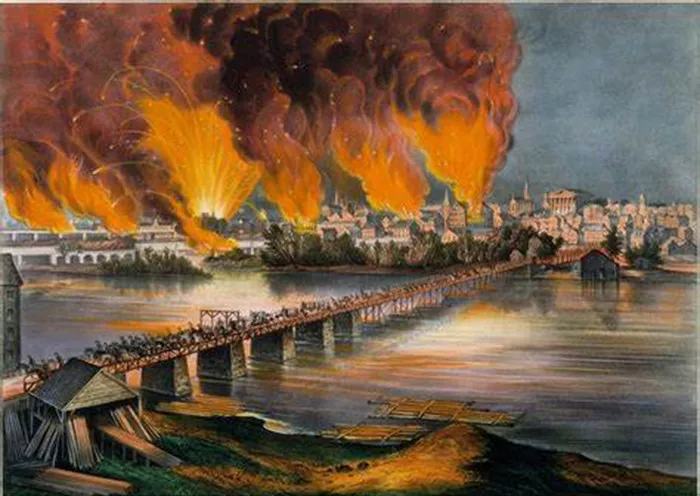March 30 has been a significant date in American history, marked by events that shaped the nation in politics, social change, law, and culture. This article explores key historical occurrences on this date, providing context and insight into their impact.
What Happened on March 30 in American History?
1. The Purchase of Alaska (1867)
One of the most pivotal events on March 30 occurred in 1867, when the United States purchased Alaska from the Russian Empire. This transaction, known as the Alaska Purchase, was negotiated by U.S. Secretary of State William H. Seward. The agreement was signed for $7.2 million, amounting to approximately two cents per acre. Critics called the acquisition “Seward’s Folly” and “Seward’s Icebox” because they saw Alaska as a barren, frozen wasteland with little economic potential.
However, over time, Alaska proved to be a valuable asset. The discovery of gold in the Klondike Gold Rush (1896-1899), the abundant natural resources, and the strategic military location during World War II and the Cold War demonstrated its importance. Alaska eventually became the 49th state of the United States on January 3, 1959.
2. The Assassination Attempt on President Ronald Reagan (1981)
On March 30, 1981, a major assassination attempt took place against President Ronald Reagan in Washington, D.C.. The attacker, John Hinckley Jr., fired six shots outside the Washington Hilton Hotel. Reagan was hit by a bullet that ricocheted off the presidential limousine, striking him in the chest. White House Press Secretary James Brady was critically wounded and suffered permanent brain damage. Two other people, Secret Service Agent Tim McCarthy and Washington D.C. police officer Thomas Delahanty, were also shot.
Reagan was rushed to George Washington University Hospital, where doctors successfully removed the bullet. Despite his injury, Reagan remained in high spirits, even joking, “I hope you’re all Republicans” to the medical team. The assassination attempt led to stricter gun control laws, including the passage of the Brady Handgun Violence Prevention Act in 1993, which required background checks for firearm purchases.
3. The Passage of the 15th Amendment (1870)
On March 30, 1870, the 15th Amendment to the U.S. Constitution was officially ratified, granting African American men the right to vote. This amendment stated:
“The right of citizens of the United States to vote shall not be denied or abridged by the United States or by any State on account of race, color, or previous condition of servitude.”
The amendment was a crucial part of Reconstruction, aiming to extend civil rights after the Civil War. However, despite its passage, many Southern states implemented poll taxes, literacy tests, and other discriminatory measures to suppress Black voters. It was not until the Voting Rights Act of 1965, signed by President Lyndon B. Johnson, that full enforcement of the 15th Amendment was achieved.
4. The Crime of the Century: The Lindbergh Baby Kidnapping Trial (1935)
On March 30, 1935, Bruno Richard Hauptmann was convicted for the kidnapping and murder of Charles Lindbergh Jr., the 20-month-old son of aviation pioneer Charles Lindbergh. The crime, which occurred on March 1, 1932, was dubbed the “Crime of the Century.”
The Lindbergh baby was taken from his crib in New Jersey, and a $50,000 ransom was demanded. Despite Lindbergh’s payment of the ransom, the child’s body was found weeks later. Hauptmann was arrested in 1934 after spending some of the marked ransom money. The trial lasted for weeks and was widely covered by the media. Hauptmann was convicted on March 30, 1935, and was executed in April 1936.
The case led to the passage of the Lindbergh Law (1932), which made kidnapping a federal crime punishable by death if the victim was harmed.
5. The Hawley-Smoot Tariff Bill Passed by the Senate (1930)
On March 30, 1930, the U.S. Senate passed the controversial Hawley-Smoot Tariff Act, which significantly increased tariffs on imported goods. The goal was to protect American farmers and manufacturers during the onset of the Great Depression. However, the law backfired. Other nations retaliated with tariffs of their own, leading to a sharp decline in international trade. Many economists believe the Hawley-Smoot Tariff deepened the economic crisis.
President Herbert Hoover signed the act into law in June 1930, but it remained one of the most criticized economic policies in American history.
6. Jeopardy! Premieres on NBC (1964)
A major event in American television history occurred on March 30, 1964, when the game show Jeopardy! premiered on NBC. Created by Merv Griffin, the show featured a unique format where contestants were given answers and had to respond with the correct question.
Jeopardy! became a cultural phenomenon, winning multiple Daytime Emmy Awards and becoming one of the longest-running quiz shows in history. Its most famous host, Alex Trebek, began hosting in 1984 and continued until his death in 2020.
7. The Opening of the First Subway in the Western U.S. (1974)
On March 30, 1974, the first subway system in the western United States opened in San Francisco, California. Known as BART (Bay Area Rapid Transit), this transportation network connected major parts of the San Francisco Bay Area.
BART revolutionized public transportation in California, providing a fast, reliable alternative to traffic-heavy highways. It was one of the most advanced transit systems of its time, incorporating computer-controlled trains.
Conclusion
March 30 has been a significant date in American history, witnessing pivotal moments in politics, law, crime, entertainment, and infrastructure. From the Alaska Purchase to the assassination attempt on Ronald Reagan, each event left a lasting impact on the nation. Understanding these historical milestones helps us appreciate how past events shape the present and future of the United States.
Related Topics:

